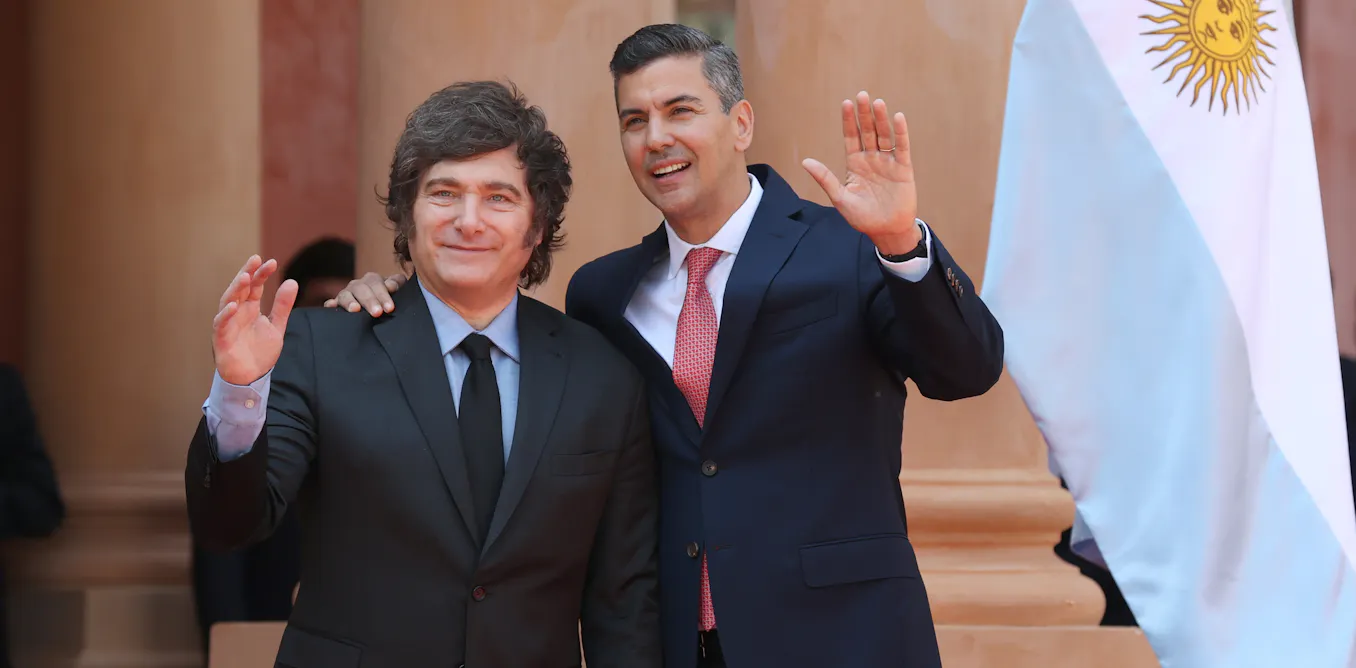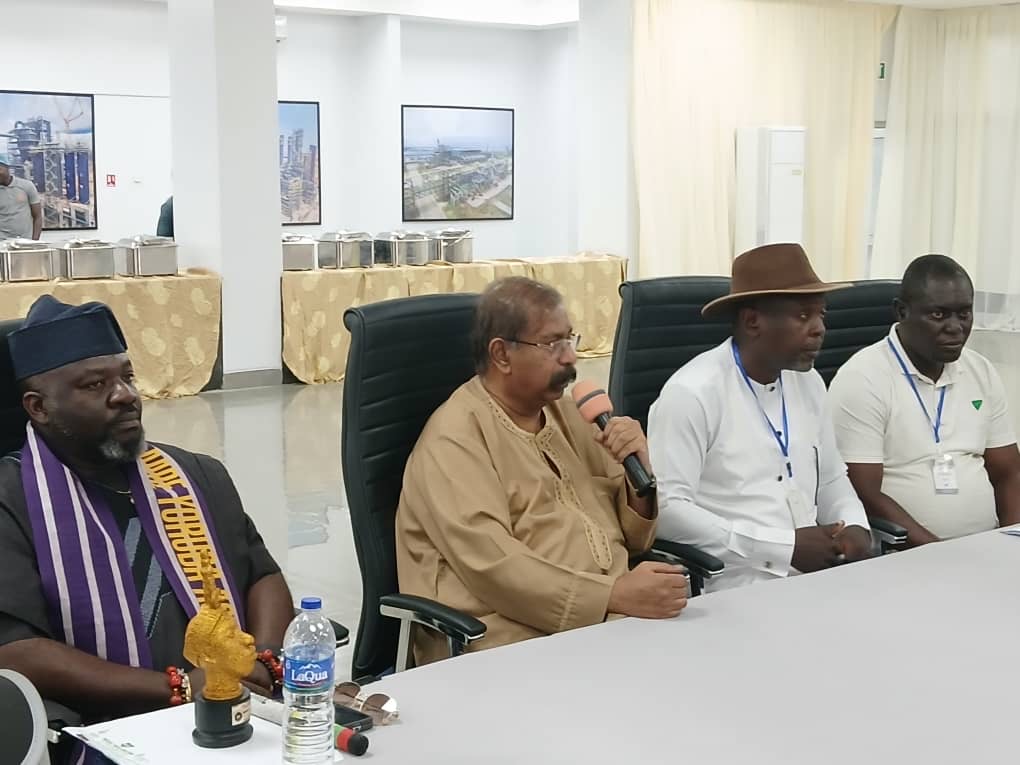By Andrew Nickson,Honorary Reader in the Department of International Development,University of Birmingham
Copyright theconversation

Paraguay hosted the Conservative Political Action Conference (CPAC), a gathering of the global right, for the first time in mid-September. In attendance were members of US president Donald Trump’s inner circle, including his long-term foreign policy advisor Richard Grenell, and President Javier Milei of Argentina.
The Paraguayan president, Santiago Peña, gave a keynote address confirming the growing identification of his Colorado party administration with the global ultra-conservative movement. He emphasised that he would defend before the world his opposition to “free abortion”, “alternative ideas of the family” and “radical social experiments”.
Paraguay is the Latin American country most strongly aligned with the foreign policy of the Trump administration. It is one of only 12 countries in the world, and the only one in South America, to maintain diplomatic relations with Taiwan. And in December 2024 it moved its embassy in Israel to Jerusalem, which Trump officially recognised as the Israeli capital in 2017 to much international criticism.
In UN General Assembly votes in June and September respectively, Paraguay joined just ten countries in voting with the US and Israel against a ceasefire in Gaza. It also voted against a two-state solution to the Israel-Palestine conflict.
Then, alongside the US, Israel, Nauru and Palau, it voted against the decision to allow Palestinian Authority leader, Mahmoud Abbas, to address the recent 80th session of the General Assembly by video link after the Trump administration refused visas for Palestinian officials to enter the US.
The US has also signed an agreement with Paraguay to outsource some of its asylum claims. The Safe Third Country Agreement will allow asylum seekers already in the US to have their claims processed in Paraguay. The details remain vague. It is unclear who will cover the costs and whether Paraguay will be obliged to host immigrants indefinitely if a visa application is refused.
And the US has announced a new joint anti-terrorism base in the Paraguayan capital, Asunción, with an operational arm in Ciudad del Este, a city on the Brazilian border. The aim is to combat international terrorism, organised crime and money laundering.
This identification with Trump’s foreign policy has been accompanied by growing links to extreme right-wing political movements in the Americas and Europe. In June, Paraguay hosted the fourth annual meeting of the Foro de Madrid, an international grouping linked to Vox, the hardline right-wing political party in Spain. Vox leader, Santiago Abascal, attended the meeting and called the Paraguayan government “a great ally”.
The Paraguayan government’s posture is spearheaded by two key figures in the Colorado party – Raúl Latorre, president of the lower house of Congress, and Gustavo Leite, the recently appointed Paraguayan ambassador to the US. Both men are possible candidates to replace Peña in the presidency in 2028.
Vehemently opposed to feminism, abortion and gay marriage, they repeatedly stress that Paraguay is an “island of conservatism”. They are also opposed to what they see as subversive foreign NGOs that enter the country under the cover of development cooperation.
In January, Latorre attended a Brussels meeting of Patriots for Europe, an extreme right grouping of European Parliament members. The following month, he spoke at a CPAC in Washington attended by Trump. And at a CPAC in Budapest several months later, Latorre and Leite condemned the UN Sustainable Development Goals, the EU and “globalists” such as Bill Gates and George Soros.
In his formal credentials ceremony in the White House on September 5, Leite posed with Trump wearing a “Make America Great Again” cap. In an effort to curry favour with the US president, he expressed his determination to halt what he called illegal efforts by China to reverse the current diplomatic recognition of Taiwan by funding opposition politicians in Paraguay.
Conservative political tradition
Paraguay’s longstanding right-wing political tradition has facilitated this political alignment. In 1887, German colonists established a colony at Nueva Germania in the north of Paraguay. The colony was inspired by the ideals of an Aryan master race.
The first Latin American branch of the German National Socialist party, known as the Nazi party, was also founded in Paraguay in 1929. And by 1939 Nazi swastikas and portraits of Adolf Hitler were prominently displayed in German schools and businesses in Asunción and the Mennonite colonies of western Paraguay’s remote Chaco region.
During the second world war, the Frente de Guerra faction of pro-fascist military and police officers exercised a strong influence over the Paraguayan government in alliance with the extreme conservative Tiempista lay movement inside the Catholic Church.
This extremist tradition was strengthened during the brutal rule of Alfredo Stroessner, son of a German immigrant, from 1954 to 1989. His regime was a staunch ally of apartheid South Africa and also became a haven for Nazis fleeing Europe. They were attracted by Stroessner’s virulent anti-communism and protected by a long-established tradition of German immigration.
These people included Josef Mengele, the infamous Nazi doctor at the Auschwitz concentration camp, who was granted Paraguayan citizenship in 1959 in his own name. Several thousand lesser known figures in the SS paramilitary organisation and Gestapo secret police migrated to Paraguay’s Mennonite colonies and German communities.
The Colorado party, through which Stroessner ruled the country, continues to dominate the political arena and pays lip service to his memory.
There is also a more prosaic reason for Paraguay’s alignment with Trump. In July 2022, during the presidency of Joe Biden, the US State Department declared former Paraguayan president Horacio Cartes (2013-2018) “a significantly corrupt person”. It cited his alleged ties to international crime, money laundering and links to international terrorism.
Cartes is the richest person in Paraguay. He bankrolls the Colorado party and handpicked Peña to do his bidding in the presidency. The US tightened sanctions against his sprawling business empire in August 2024, forcing him to divest ownership of Tabacalera del Este. Known as Tabesa, the company has routinely been accused of smuggling cigarettes throughout the Americas.
Since Trump returned to power in January 2025, Cartes has been doing everything to curry favour with the US administration in order to get the sanctions removed. So far, he has been unsuccessful.



